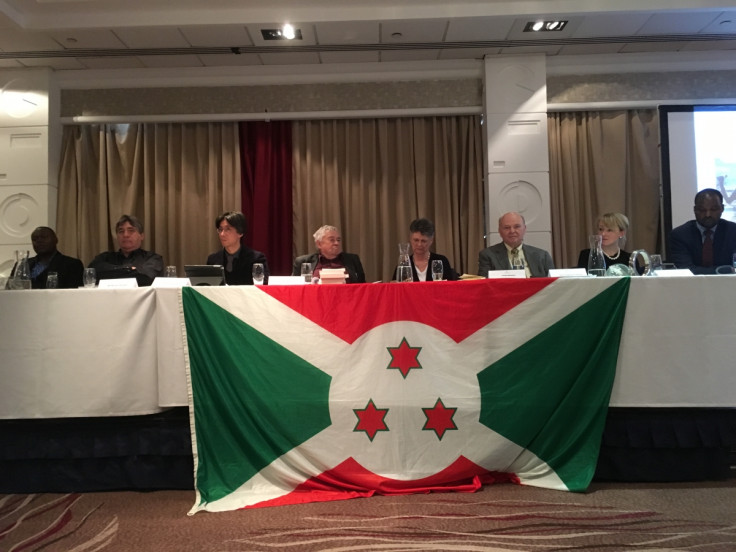Burundi: UN resolution on human rights situation 'an important step for ICC probe'
ICC opened preliminary examination into abuses that may amount to crimes against humanity.
A resolution on the human rights situation in Burundi adopted by the United Nations (UN) Human Rights Council last week is an important step for the course of international justice, according to the lawyer acting on behalf of the families of victims of Burundi's security crackdown.
In April, the International Criminal Court launched a preliminary inquiry into alleged crimes committed in the country after 60 Burundian families of the victims of alleged extra-judicial executions officially mandated a group of lawyers to bring cases to the UN High Commissioner for Human Rights, as well as the ICC.
On 30 September, the Council adopted a resolution effectively launching a year-long inquiry to identify perpetrators of killings and torture in the African nation which has been rocked by a bloody crisis for 18 months.
UN Resolution 'will have an impact' on ICC probe
What is an ICC preliminary examination?
A preliminary examination is not an official investigation but a process of examining the information available in order to decide whether there is a reasonable basis to proceed with an investigation under the Rome Statute.
There are no timelines provided in the Rome Statute for a decision on a preliminary examination.
While the ICC prosecutor usually awaits the approval of local authorities before opening a preliminary examination, Prosecutor Fatou B. Bensouda has started the process without it, after reviewing reports of a number of alleged crimes committed in the country since the start of the crisis a year ago.
One of the criteria for the ICC to open an investigation is the impossibility to obtain justice by other means.
"The resolution is an important step. The resolution will have an impact because the UN investigators report promote the exercise of justice by an independent justice system," Bernard Maingain, one of the three lawyers representing the families of victims, told IBTimes UK.
"This is very clear: the inquiry should be impartial because the Burundian judiciary never investigates when it comes down to victims of crimes committed by the state and those linked to it."
Burundi's civil society lawyer Maingain, who confirmed his team currently has 110 warrants, said he expected an additional 50 to 100 warrants to fall. "So we are in a stronger position. We are not only like human rights investigators doing reports, we are carrying warrants to seek compensation and the exercise of justice", he explained.
The bloody crisis that has killed up to 900 people, pits supporters of President Pierre Nkurunziza against those who say that his re-election in July 2015 for a third term violated the nation's constitution. After a failed coup, the government intensified its crackdown and most of those arrested or disappeared today are young men and women accused of participating in or supporting opposition groups, including armed groups whose attacks have also left dozens dead.
Lawyer barred from entering Burundi
Belgian attorney Maingain, who defended a putschist general accused of involvement in an attempted coup against Burundi's President Pierre Nkurunziza in May 2015, is himself being prosecuted by the Burundian justice system.

While the Burundian authorities barred Maingain from entering the country and filed a complaint against the attorney in Paris, France, the Burundian state has launched proceedings against Armel Niyongere another lawyer representing the families of victims, to disbar him from the Burundian bar.
"The lawyers defending the victims are themselves in a position where the authorities try to prevent them from practising," Maingain added.
UN investigators last month expressed grave concerns about the human rights situation in the African nation as the world body published a report and listed suspects behind alleged violations "by the government and people whose actions can be attributed to the government" amounting to crimes against humanity. UN investigators verified 564 executions in the central African nation since April 2015.
Burundi, speaking as the concerned country, rejected the UN draft resolution, saying that the inquiry could "aggravate the human rights situation" and that the creation of another mechanism "was unjustified".
© Copyright IBTimes 2025. All rights reserved.




















